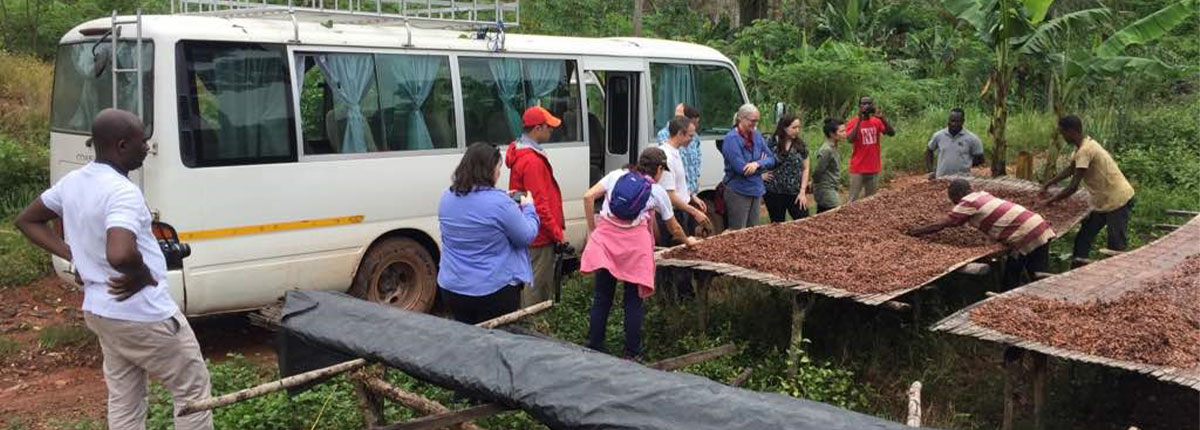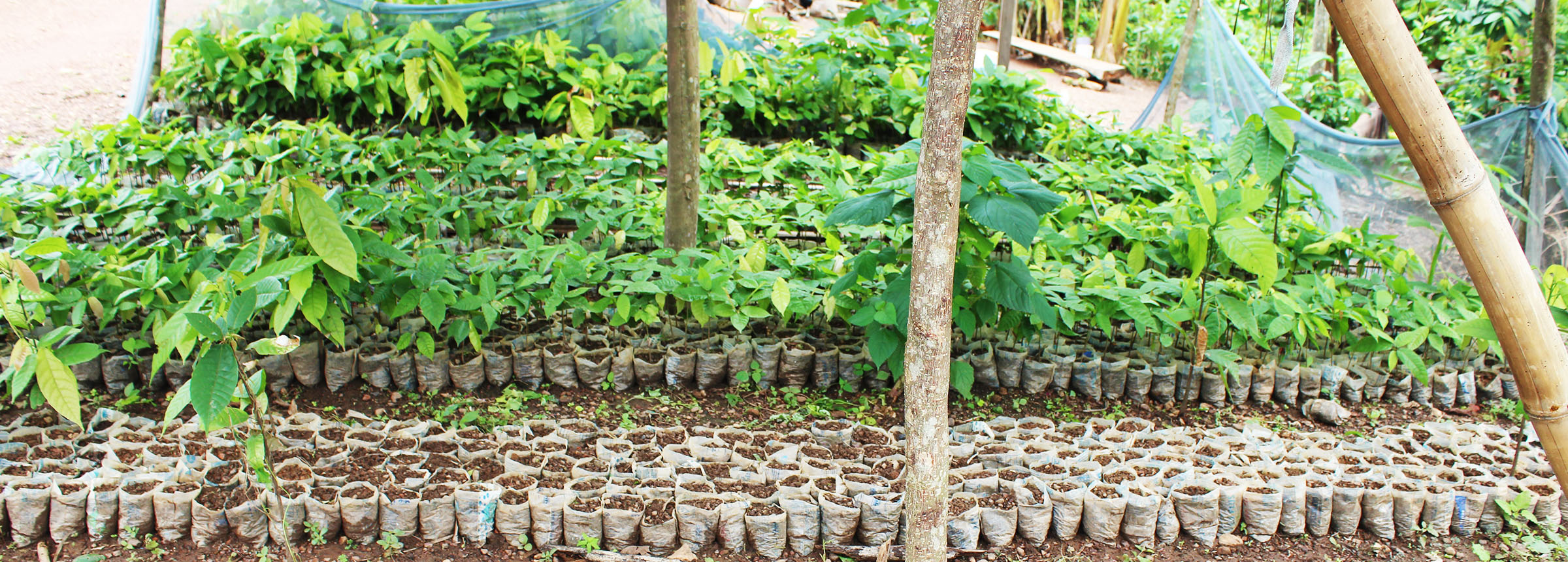
An Award-Winning Partnership in Ghana Strengthens Land Tenure and the Global Cocoa Supply
The vast majority of cocoa consumed in America comes from only two countries – Côte d’Ivoire and Ghana. What happens there has an outsized influence on America’s chocolate supply. Yet in Ghana, the supply has been under threat like never before, as up to 40 percent of cocoa farms suffer from low productivity, with many old trees needing to be replanted. In the past, Ghanaian small growers cleared old growth forests to carve out new cocoa farms. But now, with so little remaining primary forests, farmers must instead replace old and unproductive cocoa trees on their present farms. Unfortunately, land tenure insecurity discourages land owners from allowing tenants to replant trees, while the high costs of cocoa rehabilitation are prohibitive to resource-poor small farmers.
To address this problem, the United States Agency for International Development (USAID)-funded Tenure and Global Climate Change (TGCC) project put out a call to support deforestation-free commodity production. The project found a virtuous alignment of interests between the development community and the private sector. Tetra Tech, in close collaboration with Winrock International, partnered with cocoa supply chain stakeholders, including the Hershey Company and ECOM Agroindustrial, to examine how land tenure constraints affect cocoa farm rehabilitation. At the time, ECOM (Hershey’s local Ghanaian cocoa supplier), was preparing trials to incentivize farmers to replant their cocoa trees with improved stock and shade trees.
Winrock took the lead to bring the actors together, while Tetra Tech provided technical assistance and the means to test innovations through the USAID TGCC project, and now the follow-on USAID Integrated Land and Resource Governance (ILRG) project.
A new solution was found where ECOM and the USAID TGCC project developed a financial model for cocoa farm rehabilitation where ECOM itself provides all the rehabilitation services to the farmer. ECOM rehabilitates and manages all farm activities over three years, while the farmer learns farm rehabilitation and management techniques and diversifies their income with cash crops.
This unique partnership was recognized as one of three winners in a case study competition at a recent USAID Private Sector Engagement Workshop in Washington, D.C.
This excerpt from Chocolate for the Future was originally published by Tetra Tech.
Related Projects

